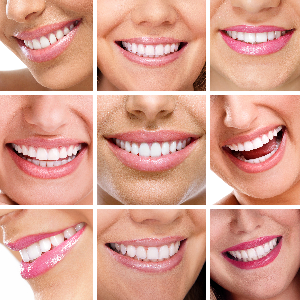
It’s no secret that strong teeth are better able to withstand tooth decay, discoloration, and other oral health problems than weak teeth. Many dental procedures you may undergo and at-home oral hygiene measures you may take are specifically designed to bolster the strength of your teeth.
However, many patients overlook one of the most obvious tools used to improve tooth strength: dental fluoride. This oversight is usually due to misconceptions about fluoride, such as the idea that fluoride treatments are only appropriate for children. In this blog, we cover the fundamental facts about fluoride and its dental uses.
What Is Fluoride?
Fluoride is a naturally occurring mineral. Natural fluoride is found in drinking water and certain foods, such as potatoes, crabmeat, and citrus fruits. In some areas in the world, including most of America, municipal water may have fluoride added to it as well.
Throughout the day, your tooth enamel gains and loses mineral content. Demineralization occurs when acids and sugars eat away at the outer layer of enamel. These acids can come directly from foods or beverages, such as sugary soft drinks, or from bacteria. If a tooth becomes too deficient in minerals, it is likely to develop cavities and other forms of tooth decay.
To combat demineralization, the body provides remineralization, which helps replace the essential minerals that have been eaten away. Remineralization can come from specific foods and beverages coming into contact with the tooth enamel or from the body supplying minerals through blood flow and saliva.
While teeth need a combination of minerals, including phosphate and calcium, fluoride is the most essential substance in the remineralization process. Not only does dietary and dental fluoride replenish lost minerals, but it also discourages future demineralization. Fluoride repairs mild tooth decay and strengthens tooth enamel so that demineralization and decay are less likely to occur.
Who Can Undergo Fluoride Treatment?
One of the most common misconceptions about fluoride is that the mineral is only helpful for children who have not developed all their adult teeth yet. While dental fluoride is particularly important for children, the mineral is used in patients of all ages to improve enamel strength.
In children, dental fluoride is used to build strong teeth for a lifetime. Before age six, a child’s permanent teeth are still developing and erupting. Any fluoride the child is exposed to during this developmental period is incorporated into his or her permanent teeth, making the enamel stronger overall.
Dentists may also recommend fluoride treatment for patients who are particularly prone to tooth decay, especially those who have other conditions that make it difficult to maintain enamel strength. You may need to undergo fluoride treatment after having a cavity filled, before starting an orthodontics program, or before beginning treatment of an oral condition such as gum disease.
Your need for dental fluoride treatments depends on your oral health, family and medical history, and dietary intake of fluoride.
How Is Dental Fluoride Applied?
Dental fluoride is available in several professional and at-home options. The fluoride solutions used in your dentist’s office or prescribed by a healthcare provider have a much higher concentration of fluoride, which makes these options better suited for patients with existing dental conditions.
Your dentist may apply fluoride at the end of routine cleaning. This fluoride comes in the form of a varnish, liquid, gel, or foam solution that is applied directly to the surface of the teeth and left on for a specified period of time. After this type of fluoride treatment, you may be asked to refrain from eating or drinking anything for 45 minutes to an hour to give the treatment time to set.
If your teeth are severely demineralized, your dentist or doctor may recommend a prescription fluoride supplement. These supplements come as liquid medicine, rinses, or tablets.
To help maintain an adequate fluoride level between dental appointments, you may decide to use at-home fluoride options as well. Generally, you have the option of either fluoridated toothpaste or mouthwash. These solutions can be used regularly as part of your usual oral hygiene routine.
Before switching to a fluoridated toothpaste or adding a fluoridated mouthwash to your daily routine, consult with your doctor. While fluoride is an important factor in achieving healthy teeth, there is such a thing as too much fluoride. If you drink heavily fluoridated water and have a prescription for a fluoride supplement, for example, you may not need to take the added step of brushing with a specialized toothpaste.
It is particularly important to check with your child’s dentist before using a fluoride solution at home. Early overexposure to fluoride could permanently discolor your child’s teeth or create surface defects in his or her enamel.
Think that regular fluoride treatment could help strengthen your smile? Discuss your treatment options with your dentist during your next appointment.
